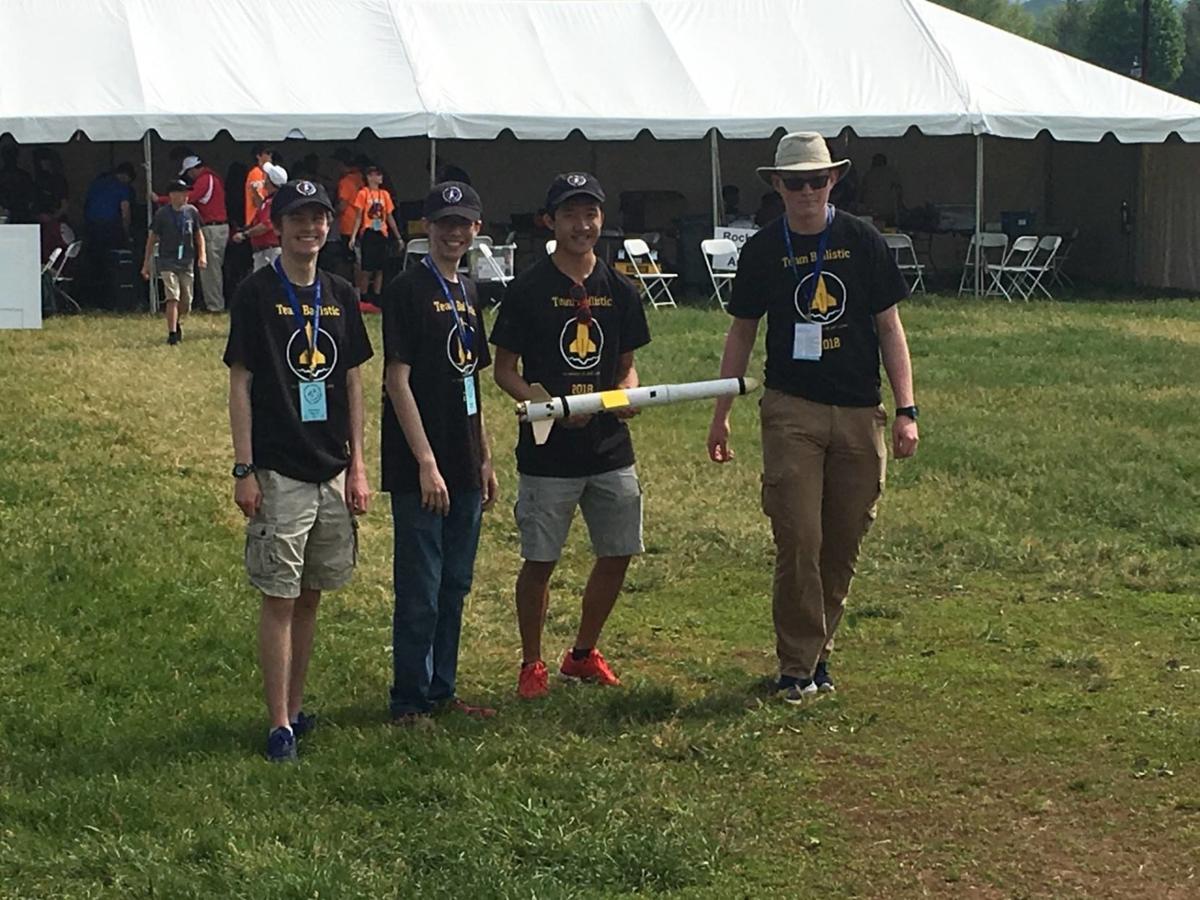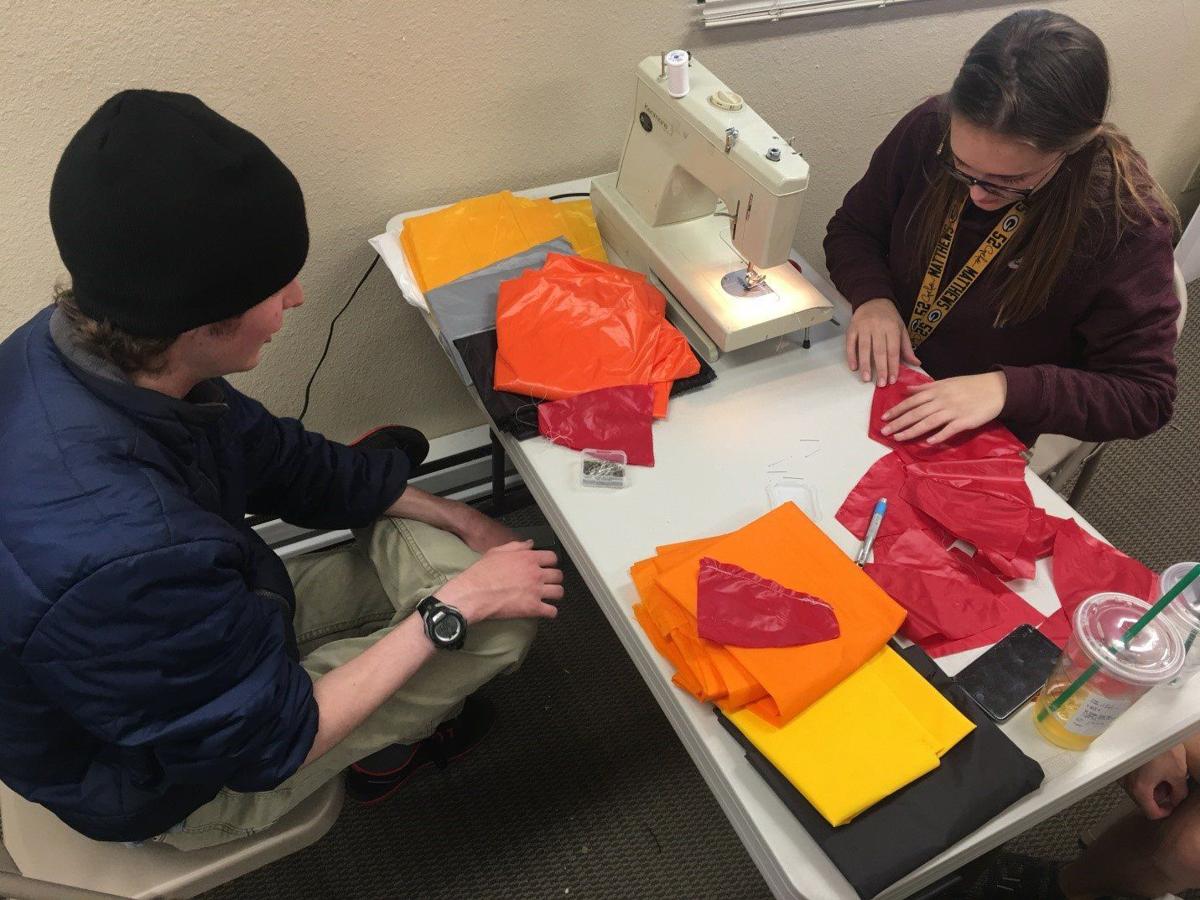Click for the original article.
The Vanguard School’s Team America Rocketry Club (TARC) has been named one of two Colorado teams to advance to the national finals on Saturday in Virginia.
Vanguard is one of two Colorado school teams to qualify for finals in the 2018-19 season and is aiming for a top-10 finish. Team members are Jonathan Drosendahl (team captain), Alex Belli, Cyan Johnson, Duncan Lewis, Yoslin Peerez-Robles, Will Stone and Leo Xiao. Team Ballistic joins another team from Durango, Colo., as the only Colorado teams to make the cut.
Vanguard has competed in the national program since the 2002-03 season, said astronomy, chemistry and rocketry teacher Steve Riegel. “We had two teams, Team Ballistic and Team Flame Tested, competing in the last two seasons and historically fielded multiple teams each year,” Riegel said.
To get to the finals, teams of three to 10 students in grades six through 12 design and test their rockets against contest rules for size and weight limits, altitudes, payload and total air time. Students were required to send three raw eggs up into the air 856 feet, separate the egg capsule from the rocket and return the egg capsule to the ground within 43 to 46 seconds, with the eggs undamaged.
Once satisfied with the testing, teams declare qualification attempts which is scored. Teams receive up to three qualification flight attempts and the best two of three scores are chosen for submission. The top 100 are invited to the finals. A total of 36 points was the qualifying cutoff for this year’s event, Riegel said.
This is the school’s third trip in the last four years and the second consecutive trip for Team Ballistic, Riegel said. “They placed 14th in the nation from more than 800 registered teams last year and were the highest-placing team from Colorado,” Riegel said.
Students developed designs during the summer and began building after school reconvened in August. To date, TARC has raised about $1,800 of its $5,000 goal, said Vanguard Director of Advancement Audrey Szychulski.
“It’s been wonderful to see this team come together and rally to raise the funds,” said Szychulski, who offers design, construction, flight testing and rocket refining advice. “A fantastic example was the carwash on May 4. All team members participated and they had a continuous line of drivers waiting to donate to the cause.”
During their trip to the finals, students will spend a morning conducting additional practice flights in Virginia to refine their parachute sizes to account denser atmosphere, Riegel said.
Students will attend a “Rockets on the Hill” reception on Friday at the Russell Senate Office Building in Washington, D.C., and showcase their design to senators and their staff. Students may take part in special tours of the Smithsonian Air and Space Museum, Udvar-Hazy Annex or Virgina-based aerospace companies.
During the competition, teams will get one flight in the first round and the top 40 based on score will fly again in the second round. The total of both scores determines national ranking. Teams in the top 10 places split $100,000 of prize money. Additional cash prizes will be awarded for innovation, engineering documentation and construction quality.
The top team receives an all-expenses paid trip to Europe this summer to compete at the International level against England, France and Japan, Riegel said. If TARC places high enough and NASA has the budget, the school may be invited to submit a bit for NASA’s Student Launch Initiative, Riegel said.
“It would having to undergo a year-long engineering proposal and design review process before eventually flying a rocket with 32 times the total power of this year’s model,” Riegel said.
Through TARC, students learn teamwork and how to analyze flight data, manage budgets, conduct computer simulations of rocket performance and apply engineering skills to designing and building the rockets. “The goal of sport rocketry is to expose and encourage new rocketeers to the hobby and graduate them up into the competition teams,” Riegel said.
Graduating students benefit from their TARC involvement. Belli plans to study mechanical engineering with Colorado School of Mines, and Xiao, computer science at UC Berkeley.
TARC is open to middle and high school students who hold a C or better in each class. Rocketry experience isn’t required, though exposure to smaller model rockets is a plus. Members must commit to attending weekly after-school club meetings, building sessions and weekend launches.



Hi, this is a comment.
To get started with moderating, editing, and deleting comments, please visit the Comments screen in the dashboard.
Commenter avatars come from Gravatar.